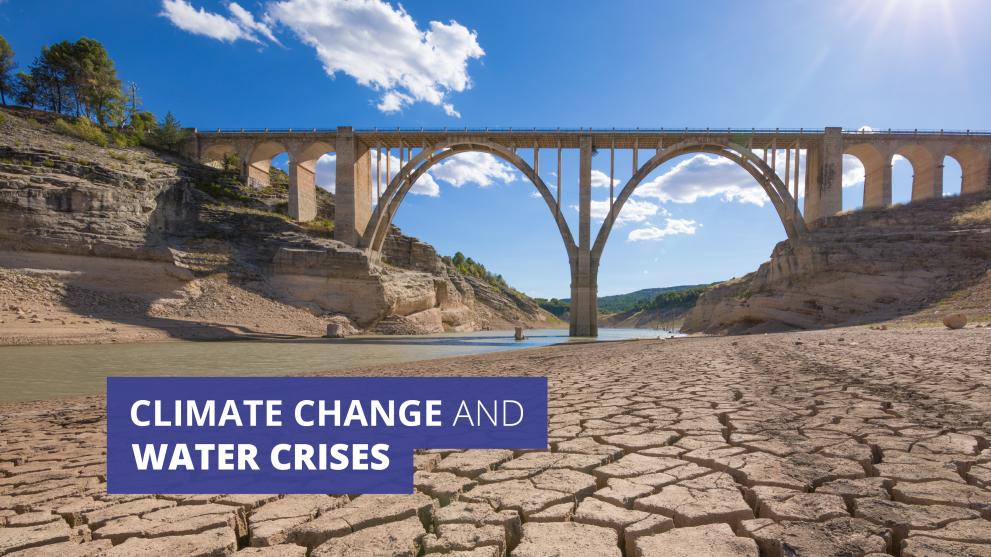
As climate change continues to impact the world we live in, water issues are rising to the surface – and we are not talking just about rising sea levels.
As early as 20 February this year, France broke a record by going 32 days in a row without rain and by April this year, more than a quarter of Europe had faced droughts. Water scarcity now affects 11% of Europeans, while 2 billion people worldwide do not have access to safe drinking water.
We rely on water to live – we drink it, but we also use it to wash and clean, water our plants and grow our food.
So, what can we all do to help solve the water crisis?
First, do not waste
Climate action is about conserving what we have, and it’s something Climate Pact Ambassador Alexander Frech from Austria feels passionately about. As former CEO and now adviser of Amiblu, a global water management company, he wants to get people thinking differently about water. ‘We still don’t treat this precious resource as we should,’ he warns in a recent podcast. In a changing climate, ‘‘water is an increasingly stressed element, with more people trying to access it.’’
For Alexander, ‘it starts with awareness, and awareness starts with transparency. We need to think about where water is used, how much is used… then focus on solutions.’
Of course, the issue cannot be solved just by individual action, but you can start smart water management in your home, and it’s getting easier to do!
Thanks to the EU Drinking Water Directive, your water supplier is required to state, on your monthly bill, the price you pay per litre of water, how much you consume and how that amount compares to the same period last year. This means you can easily monitor and improve your water consumption.
Alexander draws a parallel with the impact of energy efficiency labelling: ‘[By incentivising better usage] here in central Europe, we decreased energy consumption…I’m 100% sure we can do the same thing for water!’ So, take a close look at your next bill and see if your water saving habits are paying off.
If they’re not, here’s a splash of inspiration for you:
- Turn off the tap when you’re brushing your teeth and take shorter showers.
- If there is any water left over from other activities, use it for watering the plants.
- Wait for your dishwasher and washing machine to be full before switching them on.
- In your garden, set up a container to catch rainwater or use a smart watering system, such as drip watering.
- Keep an eye out for leaks around your house and fix them quickly.
These actions might sound small, but they can have a big impact. For example, you can save litres of water every time you brush your teeth just by turning off the tap!
Go local and lobby for change
Beyond what we can do in our homes, many European regions and cities work on water management, including by their involvement in the European Climate Pact.
In Spain, Murcia has committed to measuring household water consumption and making the information public. The city is also working on identifying local water supply risks, while preventing and preparing for any shortages. Meanwhile, as part of its local energy and climate pact, the Flemish Government set water harvesting as one of its 10 concrete actions on climate mitigation and adaptation – with the target of collecting and storing an extra cubic meter of rainwater per citizen by 2030.
You can find out if your country, city or region has committed to any water targets on the EU Climate Pact website. And if they haven’t, why not reach out to your local representatives to see how they are working on saving water? (Tip! Find your Member of the European Parliament.)
If you have an idea or initiative you are ready to share with your community or local representative, check out our tips on how to talk to people about climate change. Don’t forget to share what you’re doing on social media using the hashtag #EUClimatePact.
Last but not least, if you want to get involved in addressing climate-related water risks, why not apply to become a Climate Pact Ambassador? Watch out for the next call for proposals later this year by subscribing to our newsletter.
Details
- Publication date
- 30 August 2023
- Author
- Directorate-General for Climate Action
